
Find Help
More Items From Ergsy search
-

How can I treat a cold at home?
Relevance: 100%
-

How to treat a cold | NHS
Relevance: 83%
-

How to Treat a Common Cold
Relevance: 79%
-

Can I receive the Warm Home Discount and Cold Weather Payment?
Relevance: 69%
-

How do I treat my child's cold? (9 - 30 months) | NHS
Relevance: 68%
-
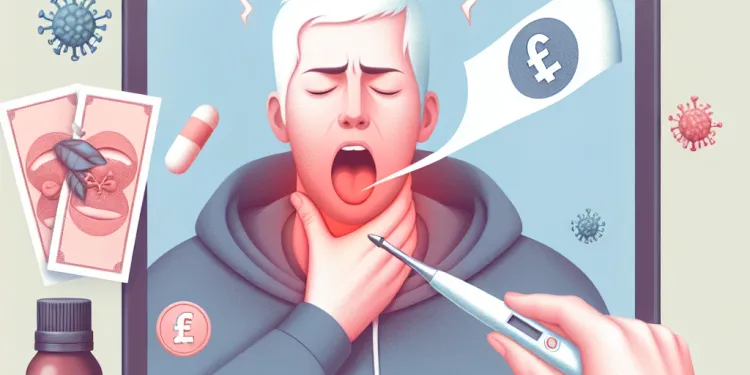
What is the best way to treat a sore throat from a cold?
Relevance: 61%
-

Can I take antibiotics for a cold?
Relevance: 59%
-

Can cold weather cause a cold?
Relevance: 56%
-

Is there a cure for cold sores?
Relevance: 54%
-

What should you do if you have a cough or cold?
Relevance: 54%
-

What are Cold Sores?
Relevance: 53%
-

Should I see a doctor for a cold?
Relevance: 52%
-
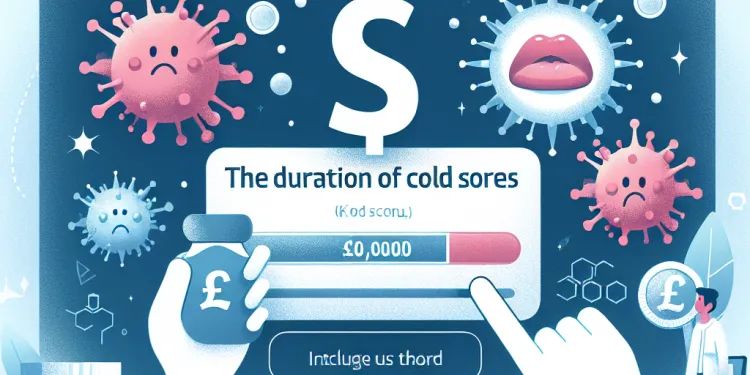
How long do cold sores last?
Relevance: 52%
-

Is there a way to cure a cold quickly?
Relevance: 51%
-
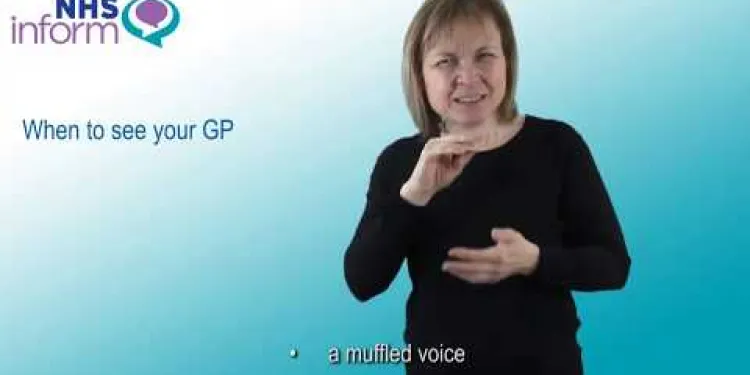
Treating a sore throat
Relevance: 51%
-

How can I prevent spreading my cold to others?
Relevance: 51%
-

Are cold sores contagious?
Relevance: 51%
-

Is Vitamin C effective against colds?
Relevance: 51%
-

Is it safe to exercise with a cold?
Relevance: 50%
-

What causes cold sores?
Relevance: 49%
-

Can I use a humidifier to help with my cold symptoms?
Relevance: 49%
-

What are the symptoms of a cold sore?
Relevance: 49%
-

Honey 'as good as antiviral creams' for cold sores | NHS Behind the Headlines
Relevance: 49%
-

What are the common symptoms of a cold?
Relevance: 49%
-
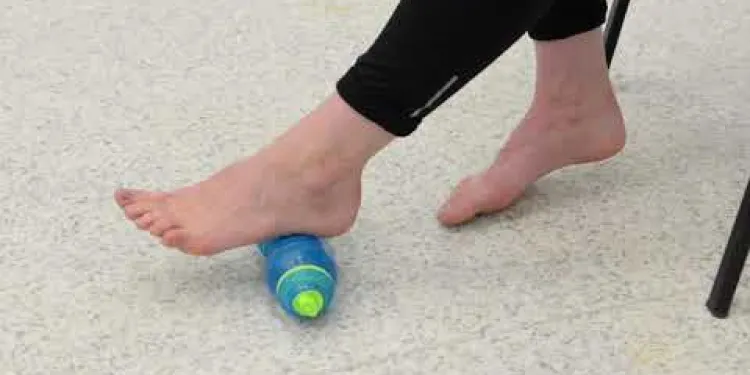
Plantar Fascia Cold Therapy
Relevance: 49%
-

How long does a common cold typically last?
Relevance: 49%
-

How are cold sores transmitted?
Relevance: 48%
-

How to treat earache | NHS
Relevance: 48%
-

Can children take the same cold medications as adults?
Relevance: 48%
-

What triggers a cold sore outbreak?
Relevance: 47%
-

How can I prevent cold sores?
Relevance: 46%
-

Is it safe to take cold showers during a heatwave?
Relevance: 46%
-

How to treat back pain | NHS
Relevance: 45%
-

Can orange juice help prevent colds?
Relevance: 44%
-

How is sunburn treated?
Relevance: 44%
-

How to treat tonsillitis | NHS
Relevance: 42%
-
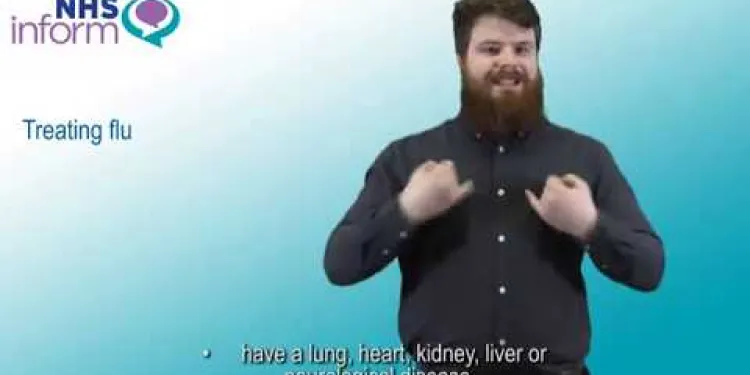
Treating flu (influenza)
Relevance: 42%
-

Is it okay to use ice packs or cold showers to cool down?
Relevance: 42%
-

How to treat a scald burn
Relevance: 41%
-
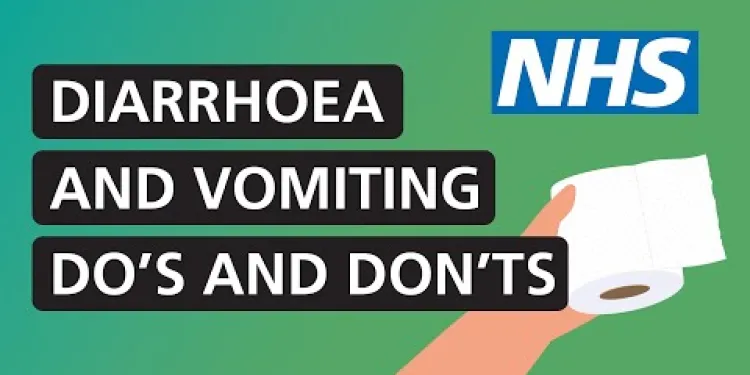
How to treat diarrhoea and vomiting at home (adults and children aged 5 and over) | NHS
Relevance: 40%
Treating a Cold at Home: A Guide for the UK
Colds are incredibly common ailments, especially during the colder months in the UK. While there's no cure for the common cold, there are several ways to alleviate symptoms and support your body's recovery process from the comfort of your home. Below are some effective methods to treat a cold at home.
Stay Hydrated
Drinking plenty of fluids can help thin mucus and relieve congestion. Aim to drink at least 6-8 glasses of water each day. Herbal teas, broths, and clear soups are also excellent options as they not only keep you hydrated but can also soothe a sore throat and provide a sense of warmth.
Rest and Recuperate
Giving your body time to heal is crucial when battling a cold. Adequate rest helps your immune system function optimally, so try to get plenty of sleep. If possible, take a day or two off work or school to allow your body to recover fully.
Consume Warm Liquids
Drinking hot liquids, such as ginger tea or warm lemon water with honey, can be beneficial. These drinks can soothe a sore throat and provide temporary relief from congestion. Honey, in particular, has anti-inflammatory properties and can ease coughing.
Use a Humidifier
The dry indoor air of heated UK homes in winter can exacerbate a sore throat and sinus congestion. Using a humidifier can introduce moisture into the air, providing relief for nasal passages. Alternatively, inhaling steam from a hot shower can also help ease congestion.
Saline Nasal Spray
Over-the-counter saline nasal sprays can help cleanse the nasal passages. They are safe and can be used to ease congestion without causing rebound swelling, which is often a side effect of medicated decongestant sprays.
Consider Over-the-Counter Remedies
In the UK, pharmacies offer a variety of over-the-counter cold remedies, such as decongestants and pain relievers like paracetamol or ibuprofen. These can help reduce symptoms such as headaches, body aches, and fevers. Be sure to follow the recommended dosage instructions or consult with a pharmacist if unsure.
While these home remedies can significantly relieve cold symptoms, it's essential to consult a healthcare professional if symptoms persist beyond ten days or if you experience severe symptoms like difficulty breathing. Always be mindful of reading labels and consulting with a healthcare professional when needed to ensure a safe and effective home treatment process.
Treating a Cold at Home: A Guide for the UK
Colds are very common, especially in the cold months in the UK. There is no cure for a cold, but there are things you can do at home to feel better. Here are some easy ways to help you get better from a cold.
Drink Lots of Water
Drinking lots of water helps with a stuffy nose. Try to drink at least 6-8 glasses of water every day. You can also drink herbal teas, broths, and clear soups. They can help with a sore throat and make you feel warm.
Rest
Rest is very important when you have a cold. Sleeping helps your body fight the cold. Try to sleep a lot. If you can, take a day or two off work or school to help your body get better.
Drink Warm Drinks
Drinks like ginger tea or warm lemon water with honey can help. They can make a sore throat feel better and help with a stuffy nose. Honey is good because it can help with coughing too.
Use a Humidifier
Air in homes can be dry in the winter. Dry air can make a sore throat worse. A humidifier adds water to the air, which can help. You can also breathe in steam from a hot shower to help with a stuffy nose.
Saline Nose Spray
Saline nose sprays from the shop can clean your nose. They help with a stuffy nose and are safe to use. They won’t cause more problems like some other sprays might.
Try Medicines from the Shop
Pharmacies in the UK have medicines that can help with a cold. Things like decongestants and painkillers like paracetamol or ibuprofen can help with headaches, aches, and fever. Always follow the instructions on how much to take, or ask a pharmacist if you're not sure.
These tips can help you feel better when you have a cold. But if your cold does not go away after ten days, or if you have serious problems like trouble breathing, see a doctor. Always read instructions on medicines and ask a doctor or pharmacist if you need help. Stay safe and get well soon!
Frequently Asked Questions
What are common home remedies for treating a cold?
Common home remedies include plenty of rest, staying hydrated with water or herbal teas, using over-the-counter remedies like paracetamol for fever and aches, and soothing sore throats with honey and lemon.
Is it important to drink fluids when I have a cold?
Yes, staying hydrated is crucial. Fluids help to thin mucus, prevent dehydration, and alleviate congestion.
Can I use a humidifier to treat cold symptoms?
A humidifier can add moisture to the air, which might help to ease congestion and soothe irritated nasal passages and throats.
Are there any specific foods I should eat to help with a cold?
Warm, comforting foods like soups and broths can help. Chicken soup is particularly popular for its potential anti-inflammatory benefits and for helping clear nasal congestion.
What over-the-counter medications are effective for a cold?
Cold sufferers often find relief with decongestants for a blocked nose, antihistamines for runny noses, and paracetamol for pain relief and reducing fever.
How can I sleep better when I have a cold?
To improve sleep, try using extra pillows to prop yourself up, which can ease breathing. Drinking a warm bedtime tea and ensuring your room is warm but well-ventilated can also help.
Is it okay to exercise when I have a cold?
Mild exercise might be okay if symptoms are above the neck, like a runny nose or sore throat. However, it's best to avoid strenuous activity and take it easy until you feel better.
Can herbal remedies help with a cold?
Herbal remedies like Echinacea or elderberry might offer some relief, though evidence varies. They could be a complementary treatment option, but it's best to consult with a healthcare professional.
What can you do at home to feel better when you have a cold?
When you have a cold, here are some things that might help:
- Drink Lots of Water: Water helps your body fight the cold.
- Rest: Sleep helps your body get better.
- Honey with Warm Water: This can soothe your throat.
- Warm Soup: It can make you feel nice and warm.
- Steam: Breathing in steam from hot water can help with a stuffy nose. Be careful with hot water!
- Tissues: Use tissues to blow your nose and keep it clean.
These things can help you feel better. If you are very sick, ask an adult or a doctor for help.
Here are some things you can do at home to feel better:
- Get lots of sleep.
- Drink water or warm herbal teas.
- If you have a fever or aches, you can take medicine like paracetamol. You can buy this at the store.
- If your throat is sore, try honey and lemon. It can help make it feel better.
You can ask a grown-up for help with these things, too!
Should I drink liquids when I have a cold?
Yes, it is good to drink plenty of water and other drinks when you have a cold. This helps your body feel better and keeps you from getting thirsty.
Here are some tips to help you drink more:
- Carry a water bottle with you.
- Try warm drinks like hot tea or soup.
- Drink small sips often, even if you are not very thirsty.
Yes, drinking enough water is very important. Water helps make mucus thinner, stops you from getting too thirsty, and helps you breathe easier.
Can I use a humidifier to help with a cold?
Yes, a humidifier can help when you have a cold. It adds moisture to the air. This can make it easier to breathe and help your throat and nose feel better.
Here are some helpful tips:
- Use the humidifier in the room where you spend the most time.
- Keep the humidifier clean to stop germs from spreading.
- Drink lots of water to stay hydrated.
- Rest and sleep to help your body get better.
Ask a grown-up if you have any questions or need help with the humidifier.
A humidifier puts water in the air. This can help you breathe better and make your nose and throat feel better when you are sick.
What foods can I eat to feel better when I have a cold?
Warm and comforting foods like soups can make you feel better. Chicken soup is very popular because it might help with a stuffy nose and make you feel less sick.
What medicines can help with a cold that you can buy without a prescription?
If you have a cold, there are some medicines you can buy at the store to help you feel better. These do not need a doctor’s note. Here are some things you can try:
- Pain Relievers: These help if you have a headache or body aches. Some examples are paracetamol and ibuprofen. Always check the package for how much to take.
- Cough Syrups: These help if you have a cough. Some are for dry coughs, and others are for coughs with mucus. Ask a pharmacist which one is best for you.
- Decongestants: These help if your nose is stuffy. They can help you breathe easier. You can find them as pills or nasal sprays.
Here are some tips to feel better when you have a cold:
- Rest: Try to sleep and rest more.
- Drink Water: Drink lots of water or juice.
- Stay Warm: Keep yourself warm, especially if you feel cold.
If you are not sure what to take, it’s okay to ask a grown-up or a pharmacist for help.
If you have a cold, there are medicines that can help you feel better.
You can use a decongestant if your nose is blocked.
If your nose is runny, you can take an antihistamine.
If you have a fever or pain, you can take paracetamol.
It is a good idea to keep tissues nearby. A warm drink can also help.
How to Sleep Well When You Have a Cold
It can be hard to sleep when you have a cold. Here are some tips to help you:
- Stay Warm: Use a cozy blanket to keep warm.
- Drink Warm Drinks: Drink warm tea or soup to feel better.
- Use Extra Pillows: Prop up your head with extra pillows to help with stuffy nose.
- Keep a Comfortable Room: Make sure your room is quiet and dark.
- Use a Humidifier: It adds moisture to the air and helps you breathe easier.
If you need help, ask a parent or friend.
To help you sleep better, you can try a few things. Use some extra pillows to lift your head up. This can help you breathe easier. Drinking warm tea before bedtime can also help. Make sure your room is warm but has fresh air too. These things can make sleeping easier.
Can I exercise if I have a cold?
Do you have a cold? Are you wondering if you can still do exercise? Here is some help.
If you have a cold, you might feel tired. It is usually okay to do light exercise, like walking. Listen to your body. If you feel too tired, it is best to rest.
If you are not sure, you can ask a grown-up or a doctor to help you decide.
Some helpful things you can use are:
- Sticky Notes: Write down how you feel each day. This can help you see if you are getting better.
- Calendar: Mark the days you feel sick. This helps you and your grown-ups see how long you have been sick.
- Apps: There are apps that can help you track how you feel. Ask a grown-up to help you choose one.
If you have a runny nose or a sore throat, it's okay to do a little bit of exercise. But do not do hard exercises. Rest until you're feeling better.
Can plant medicines help when you have a cold?
When you have a cold, you might feel stuffy, have a runny nose, or a sore throat. Some people wonder if plant medicines can help them feel better.
Plant medicines are things made from plants, like special teas or oils. They might help because:
- Some teas, like lemon and honey tea, can make your throat feel better.
- Menthol oils can help you breathe easier if you feel stuffy.
Remember to drink lots of water and rest too. If you feel very sick, it's good to ask a grown-up or a doctor for help.
You can also try using warm towels or a humidifier to make your nose feel better.
Herbal treatments like Echinacea or elderberry might help a bit, but we aren't sure how well they work. You can try them, but talk to a doctor first.
Useful Links
This website offers general information and is not a substitute for professional advice.
Always seek guidance from qualified professionals.
If you have any medical concerns or need urgent help, contact a healthcare professional or emergency services immediately.
Some of this content was generated with AI assistance. We’ve done our best to keep it accurate, helpful, and human-friendly.
- Ergsy carfully checks the information in the videos we provide here.
- Videos shown by Youtube after a video has completed, have NOT been reviewed by ERGSY.
- To view, click the arrow in centre of video.
- Most of the videos you find here will have subtitles and/or closed captions available.
- You may need to turn these on, and choose your preferred language.
- Go to the video you'd like to watch.
- If closed captions (CC) are available, settings will be visible on the bottom right of the video player.
- To turn on Captions, click settings .
- To turn off Captions, click settings again.
More Items From Ergsy search
-

How can I treat a cold at home?
Relevance: 100%
-

How to treat a cold | NHS
Relevance: 83%
-

How to Treat a Common Cold
Relevance: 79%
-

Can I receive the Warm Home Discount and Cold Weather Payment?
Relevance: 69%
-

How do I treat my child's cold? (9 - 30 months) | NHS
Relevance: 68%
-

What is the best way to treat a sore throat from a cold?
Relevance: 61%
-

Can I take antibiotics for a cold?
Relevance: 59%
-

Can cold weather cause a cold?
Relevance: 56%
-

Is there a cure for cold sores?
Relevance: 54%
-

What should you do if you have a cough or cold?
Relevance: 54%
-

What are Cold Sores?
Relevance: 53%
-

Should I see a doctor for a cold?
Relevance: 52%
-

How long do cold sores last?
Relevance: 52%
-

Is there a way to cure a cold quickly?
Relevance: 51%
-

Treating a sore throat
Relevance: 51%
-

How can I prevent spreading my cold to others?
Relevance: 51%
-

Are cold sores contagious?
Relevance: 51%
-

Is Vitamin C effective against colds?
Relevance: 51%
-

Is it safe to exercise with a cold?
Relevance: 50%
-

What causes cold sores?
Relevance: 49%
-

Can I use a humidifier to help with my cold symptoms?
Relevance: 49%
-

What are the symptoms of a cold sore?
Relevance: 49%
-

Honey 'as good as antiviral creams' for cold sores | NHS Behind the Headlines
Relevance: 49%
-

What are the common symptoms of a cold?
Relevance: 49%
-

Plantar Fascia Cold Therapy
Relevance: 49%
-

How long does a common cold typically last?
Relevance: 49%
-

How are cold sores transmitted?
Relevance: 48%
-

How to treat earache | NHS
Relevance: 48%
-

Can children take the same cold medications as adults?
Relevance: 48%
-

What triggers a cold sore outbreak?
Relevance: 47%
-

How can I prevent cold sores?
Relevance: 46%
-

Is it safe to take cold showers during a heatwave?
Relevance: 46%
-

How to treat back pain | NHS
Relevance: 45%
-

Can orange juice help prevent colds?
Relevance: 44%
-

How is sunburn treated?
Relevance: 44%
-

How to treat tonsillitis | NHS
Relevance: 42%
-

Treating flu (influenza)
Relevance: 42%
-

Is it okay to use ice packs or cold showers to cool down?
Relevance: 42%
-

How to treat a scald burn
Relevance: 41%
-

How to treat diarrhoea and vomiting at home (adults and children aged 5 and over) | NHS
Relevance: 40%


